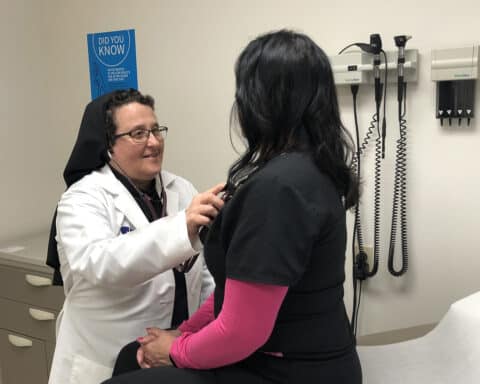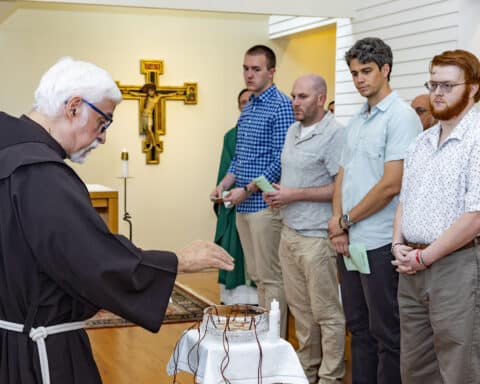At the heart of our Catholic faith lies a deep-rooted commitment to caring for the sick and vulnerable. Historically, the Church has been at the forefront of health care, founding hospitals and institutions dedicated to the well-being of every person, whether Catholic or not. Yet, in today’s evolving health care landscape, we must ask ourselves a crucial question: Are we doing enough to address the gap between institutional and in-home health care?
Many of us have witnessed the challenges that arise when a loved one falls ill and requires medical attention. The options often seem limited — loading a frail family member into a car, calling an ambulance, or enduring the difficulties of home care without the necessary support. This predicament forces families to make agonizing decisions about their loved ones’ care.
One glaring issue is the transition from hospital care to in-home care. Often, individuals who could benefit from in-home care are forced to be released to hospice simply to receive the care they need without bearing the financial burden. While hospice provides crucial palliative care, it should not be the default solution when in-home care is a viable option.
The Catholic Church, with its extensive network of hospitals across the United States, has a unique opportunity to bridge this gap. But currently, our multibillion-dollar Catholic health systems, despite their noble missions, are not adequately addressing the changing landscape of health care. And while the USCCB’s Ethical and Religious Directives (ERDs) provide important moral guidance to these institutions, the ERDs do not dictate their business structures or models.
A saintly example
As our population ages, the need for in-home care becomes increasingly vital. We must strive to help people remain in their homes, preserving their independence and dignity. Yet the current American health care system, of which our Catholic institutions are an increasingly significant part, lacks financial incentives for achieving this goal.
Consider the fact that many doctors are located just minutes away from their patients’ homes, yet house calls are virtually nonexistent. And despite doctor-patient relationships that often span decades, this disconnect between health care providers and the reality of patients’ lives impedes progress toward in-home care that offers more than palliative care.
In reflecting on the recent feast of St. Vincent de Paul, we find inspiration in the Vincentian tradition of visiting homes and caring for those in need. What if we were to envision entire new religious orders dedicated to helping people stay in their homes? What if, as a Church, we took up the mantle of providing compassionate in-home care, mirroring the values of St. Vincent de Paul?
Our Catholic faith calls us to love our neighbors as ourselves, and in-home health care presents a tangible and deeply meaningful way to manifest this divine commandment. By expanding our collective focus beyond institutionalized care and fully embracing the sacred call to serve those in need in the comfort of their own homes, we could genuinely address this glaring gap in the modern health care system. It is time for the Catholic Church to lead the way in revolutionizing health care, ensuring that all individuals, especially the most vulnerable among us, receive the care and support they deserve, in the place they call home.
Advocating for our elders
The status quo is not sufficient. But transforming the health care landscape in our country demands innovative thinking, bold initiatives and a commitment to channeling our resources and expertise toward in-home health care solutions. Our multibillion-dollar Catholic health care networks have the capacity to become pioneers in this field, aligning their missions with the evolving needs of the communities they serve. Our American population is aging, and the Catholic Church must stand ready to care for the elderly, defending their liberty and empowering them to continue to live their lives to the full.
During the first general audience held in St. Peter’s Square after the gatherings were suspended to prevent the spread of the coronavirus, Pope Francis unequivocally condemned “contempt” for the elderly. The pope explained, “This occurs when weakness is reproached, and even punished, as if it were a fault, and when bewilderment and confusion become an opening for derision and aggression.” The Catholic response demands that we honor our elders. We must be their advocates in systems that might otherwise be tempted to cast them aside.
As stewards of the Gospel and advocates for the marginalized, we are duty-bound to champion in-home health care expansions. Let us honor our tradition of care by reaching into the homes of those in need, extending our hands in compassion and our hearts in love. The time has come for the Church to be a beacon of hope and healing by answering the gap in in-home health care with unwavering commitment and boundless love.





